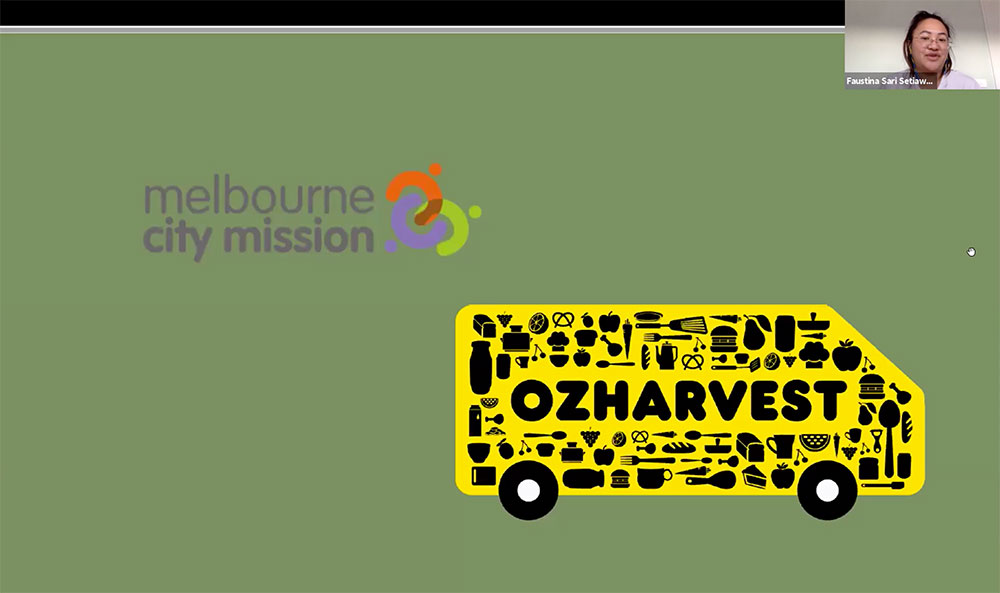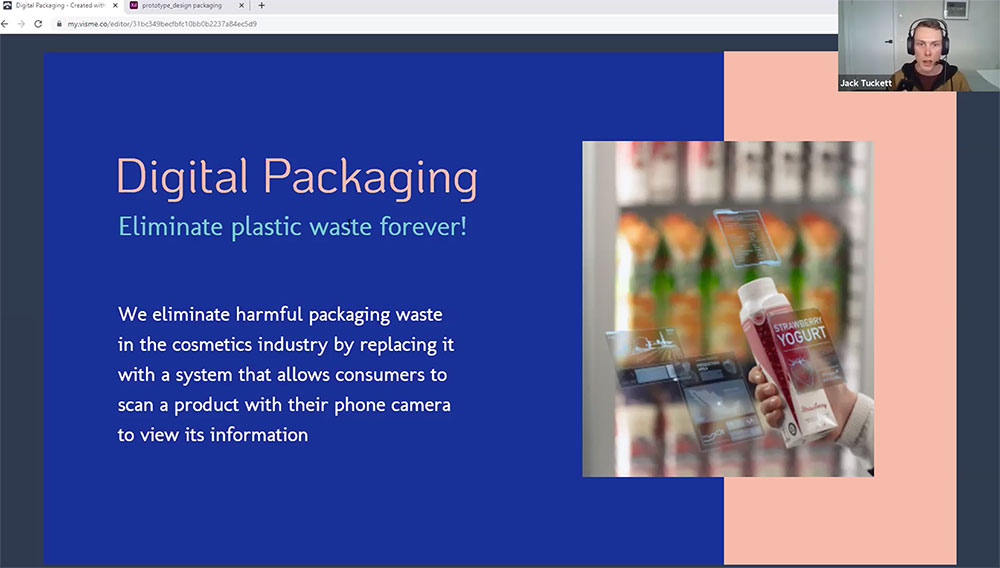Activator comes full circle with E-week 2020
Riddled with inequalities, our current economic system was not designed for sustainable growth. How can we create solutions through a circular economy lens to build a healthier and more sustainable system for all?
This was the theme of Entrepreneurship Week (E-week) 2020, an annual calendar highlight held by RMIT Activator – the heart of entrepreneurship and innovation at RMIT University.
With almost 270 attendees, E-week brought the RMIT community together to discuss, ideate and raise awareness on circular economy solutions for a more sustainable Victoria.
Kicking off the week was Amanda Pacheco Bravo, RMIT student and the winner of CoM Open Innovation Competition, who was invited to share her expertise on innovation and give the students a boost of motivation.
Anchoring the entire E-week was the Social Innovation Hackathon, held jointly by Activator, RMIT Social Innovation HUB and RMIT Sustainability.
It was also joined by industry supporters Circular Economy Victoria, City of Melbourne and Good Cycles.
The two-day event focused on circular economy solutions centred on the UN Sustainable Development Goals (SDG) 10, 11 and 12.
Six hackathon teams put on their thinking caps to address the three problem statements – how to close inequality gaps for those impacted by the pandemic, how might we make the connectivity of our communities more sustainable and how might we design waste out of consumption and production.
“Under the scope of SDG 12 (sustainable consumption & production), our team came up with a solution to provide reusable packaging containers that customers can choose to return,” said Dushyant Kumar, whose team placed third.
“Our services would collect these containers from the customer's front door, sanitize them, and put them back into circulation to be used by other customers.”
 Melbourne City Mission, Ozharvest presentation
Melbourne City Mission, Ozharvest presentation
Another hackathon winner, Jack Tuckett and his team, came up with the concept of digital packaging to address the shocking amount of single use packaging going to the landfills every year.
“With digital packaging, consumers visit a store to scan a 'naked' product without any packaging using their phone camera, which then displays real time product information such as ingredients or directions of use on screen,” said Jack, who is undertaking a double degree in mechanical engineering and business management.
“This allows manufacturers to minimise or even eliminate product packaging. It can even provide retailers with creative marketing opportunities.”
For our participants, the hackathon was a hands-on exercise in innovation and entrepreneurial thinking.
“It helped us develop our problem-solving skills through interactions with industry experts,” said Dushyant. “The 2-day sprint provided more clarity on how businesses operate specifically and how one can enter the market and scale the idea with time.”
“I love hackathons and commit myself to going to as many as I can,” said Jack. “I find they are a great way to meet new people, practice creative thinking, and develop interesting business ideas.”
“This was the first hackathon I completed online, and the experience was just as fun. It was great to receive mentoring from industry experts and brainstorm ideas for contributing to a sustainable future and circular economy.”
The teams were judged by a panel of industry experts which consisted of Ciannon Cazaly (Social Innovation Partnerships, RMIT), Darren Sutton (The Common Purpose Collective), Sean Trewick (Circular Economy Victoria) and Emma Forster (City of Melbourne).
Not only did the winners receive a cash prize of up to $3500, they also received free memberships to Circular Economy Victoria and Activator Connect.
E-week 2020 was made possible by the funding of prominent alumni and philanthropist, Jacques Nasser, to support talented and highly motivated students to get ahead of the curve through participation in entrepreneurial experiences.
Activator is now in our fourth year of delivering impact-focused hackathons.
To date, the funding has enabled us to deliver three successful sponsored hackathons including the Innovation Impact (2017), the Social Impact Hackathon (2018), and the Technology Entrepreneurs Bootcamp (2019).
 Jack Tuckett presenting on digital packaging
Jack Tuckett presenting on digital packaging
Related News
Acknowledgement of Country
RMIT University acknowledges the people of the Woi wurrung and Boon wurrung language groups of the eastern Kulin Nation on whose unceded lands we conduct the business of the University. RMIT University respectfully acknowledges their Ancestors and Elders, past and present. RMIT also acknowledges the Traditional Custodians and their Ancestors of the lands and waters across Australia where we conduct our business.